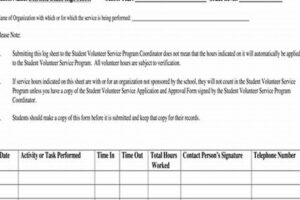Table of Contents
In today’s interconnected world, volunteering has become a significant force for positive change, inspiring individuals from all walks of life to dedicate their time and energy to causes close to their hearts. But what drives people to volunteer? What are the motivations and rewards that fuel their commitment to making a difference?
From altruistic intentions to personal enrichment, the reasons why people volunteer are as diverse as the individuals themselves. This article delves into the psychology behind volunteering, exploring the common themes and unique perspectives that shape the decision to give back. Through interviews with volunteers, research findings, and expert insights, we uncover the motivations that inspire people to dedicate their time and energy to making a positive impact in their communities and beyond.
As we embark on this journey of understanding why people volunteer, we will discover a tapestry of motivations woven together by the power of human connection, the desire for personal growth, and the intrinsic rewards that come from making a difference in the world.
Why People Volunteer
Unveiling the Motivations Behind Giving Back
- Altruism and Empathy:
- Personal Growth and Skill Development:
- Strengthening Community Ties:
- Fostering Social Change:
- Improving Mental and Physical Health:
- Combating Loneliness and Isolation:
- Enhancing Job Prospects:
- Experiencing Joy and Fulfillment:
These interconnected reasons underscore the profound impact volunteering has on individuals, communities, and society as a whole.
Altruism and Empathy:
At the heart of many people’s decision to volunteer lies a deep-seated sense of altruism and empathy. These powerful human qualities drive individuals to selflessly prioritize the needs of others, compelling them to dedicate their time and energy to making a positive impact in their communities and beyond.
For many volunteers, the act of giving back is intrinsically rewarding. They derive immense satisfaction from knowing that they are making a difference in the lives of others, regardless of personal gain or recognition. This motivation is often rooted in a profound sense of empathy, the ability to understand and share the feelings of others. When we empathize with those in need, we are more likely to feel compelled to help alleviate their suffering and improve their circumstances.
Furthermore, volunteering can foster a sense of connection and belonging, particularly among individuals who may feel isolated or marginalized. By working together towards a common goal, volunteers can forge meaningful relationships with others who share their values and passions. This social aspect of volunteering can be especially beneficial for those seeking to expand their social circle or build a stronger sense of community.
Moreover, volunteering can be a transformative experience that promotes personal growth and development. By stepping outside of their comfort zones and engaging with diverse populations, volunteers can gain new perspectives, learn valuable skills, and develop a greater appreciation for the challenges and triumphs of others.
In essence, altruism and empathy are the driving forces behind countless acts of volunteerism, inspiring individuals to selflessly dedicate their time and energy to making the world a better place.
Personal Growth and Development:
For many volunteers, the act of giving back is not only a way to make a difference in the world but also an opportunity for personal growth and development.
- Gaining New Skills and Knowledge:
Volunteering often involves stepping outside of one’s comfort zone and learning new skills or acquiring new knowledge. This can be especially beneficial for individuals looking to expand their skill set, explore new career paths, or simply challenge themselves.
- Enhancing Problem-Solving and Critical Thinking Skills:
Many volunteer roles require volunteers to think critically and creatively to solve problems and overcome challenges. This can help volunteers develop stronger problem-solving skills, which can be valuable in both personal and professional life.
- Building Leadership and Teamwork Skills:
Volunteering often involves working in teams and collaborating with diverse groups of people. This can help volunteers develop their leadership skills, learn how to work effectively in teams, and build stronger communication and inter-personal skills.
- Fostering Empathy and Understanding:
By working with people from different backgrounds and circumstances, volunteers can develop a greater sense of empathy and understanding for the challenges and perspectives of others. This can lead to increased tolerance, compassion, and a more inclusive mindset.
Overall, personal growth and development are often cited as key motivators for people to volunteer. By giving back, individuals can gain new skills, expand their knowledge, and develop valuable personal qualities that benefit them in various aspects of their lives.
Strengthening Community
For many people, the desire to strengthen community ties is a powerful motivator for engaging in volunteer work.
- Fostering a Sense of Belonging and Purpose:
Volunteering can help individuals feel more connected to their community and give them a sense of purpose. By working together on common goals, volunteers can build relationships, cultivate a sense of belonging, and feel more invested in the well-being of their community.
- Promoting Civic Engagement and Participation:
Volunteering can encourage civic engagement and participation in community affairs. By taking active roles in their communities, volunteers can influence policies, advocate for positive change, and work towards a more just and equitable society.
- Preserving Cultural Identity and Heritage:
Many volunteers choose to work on projects that preserve cultural identity and heritage. This type of volunteer work can help keep traditional practices, languages, and customs alive while also fostering a sense of appreciation and respect for diversity.
- Creating More Vibrant and Sustainable Communities:
Volunteering can make communities more vibrant and sustainable. By working on projects that address social, environmental, and economic issues, volunteers can contribute to a stronger and more resilient community fabric.
In essence, strengthening community ties is a key motivator for many people to volunteer. By working together and actively engaging in community affairs, volunteers can build stronger, more connected, and more resilient communities.
Fostering Social Change:
Many people are drawn to volunteer work because it offers them an opportunity to foster social change and make a positive impact on the world. This motivation is often driven by a deep sense of justice, equality, and a desire to create a better society for all.
For some volunteers, social change may involve working on projects that address specific social issues, such as poverty, homelessness, or racial discrimination. Others may choose to volunteer for organizations that are working to promote peace, human rights, or environmental sustainability.
Regardless of the specific cause, volunteers who are motivated by a desire to foster social change are often passionate and committed to making a difference. They may volunteer their time on a regular basis or participate in one-time projects that align with their values and beliefs.
By actively engaging in volunteer work, these individuals hope to contribute to a more just, equitable, and sustainable world. They believe that by working together, communities can overcome challenges, address systemic issues, and create positive change.
In essence, fostering social change is a powerful motivator for many people to volunteer. By dedicating their time and energy to causes they care about, these volunteers aim to make a meaningful impact on society and work towards a better future for all.
Improving Mental and Physical Health:
Volunteering has been shown to have numerous benefits for both mental and physical health. For many people, volunteering is a way to improve their overall well-being.
One of the key mental health benefits of volunteering is the reduction of stress and anxiety. When people volunteer, they often experience a sense of purpose and fulfillment, which can help to reduce feelings of stress and anxiety. Additionally, volunteering can provide a sense of social connection and support, which can also be beneficial for mental health.
Volunteering can also have a positive impact on physical health. Studies have shown that volunteers are more likely to engage in healthy behaviors, such as regular exercise and healthy eating. Additionally, volunteering can help to reduce the risk of chronic diseases, such as heart disease and stroke.
Furthermore, volunteering can provide opportunities for physical activity and social interaction, which can both contribute to better physical and mental health. By engaging in volunteer work, individuals can improve their overall health and well-being.
In essence, improving mental and physical health is a significant motivator for many people to volunteer. By giving back to their communities, volunteers can experience reduced stress, increased social support, and improved overall well-being.
Combating Loneliness and Isolation:
For many people, volunteering is a way to combat loneliness and isolation. Volunteering can provide opportunities for social interaction and connection, which can be especially beneficial for individuals who may be experiencing social isolation due to factors such as age, disability, or lack of transportation.
When people volunteer, they have the chance to interact with others who share similar interests and values. This can help to reduce feelings of loneliness and isolation and foster a sense of belonging and community.
Additionally, volunteering can provide opportunities for individuals to learn new skills, challenge themselves, and make a positive impact on their communities. These experiences can boost self-confidence and self-esteem, which can further help to combat loneliness and isolation.
Furthermore, volunteering can help to reduce stress and anxiety, which are often associated with loneliness and isolation. By engaging in meaningful activities and connecting with others, volunteers can improve their overall mental and emotional well-being.
In essence, combating loneliness and isolation is a key motivator for many people to volunteer. By giving back to their communities, volunteers can find social connection, reduce feelings of loneliness, and improve their overall well-being.
Enhancing Job Prospects:
For many people, volunteering is a way to enhance their job prospects and develop valuable skills that can benefit their careers.
- Gaining New Skills and Experience:
Volunteering can provide opportunities to gain new skills and experience that can be directly relevant to one’s career field. This can be especially beneficial for individuals who are looking to enter a new field or those who want to advance their careers.
- Building a Strong Resume:
Volunteering experience can be a valuable addition to a resume, demonstrating an individual’s commitment to giving back and their ability to work well with others. It can also show potential employers that the individual has relevant skills and experience that can be applied to the job.
- Networking and Building Connections:
Volunteering can provide opportunities to network with professionals in various fields and build valuable connections. These connections can be helpful for individuals who are looking for job opportunities or seeking advice and guidance in their careers.
- Exploring Career Interests:
Volunteering can be a great way to explore different career interests and gain hands-on experience in a particular field. This can help individuals make more informed decisions about their career paths and identify potential career opportunities that align with their values and skills.
In essence, enhancing job prospects is a significant motivator for many people to volunteer. By giving back to their communities, volunteers can develop valuable skills, gain relevant experience, build their networks, and explore career interests, all of which can contribute to their professional growth and success.
Experiencing Joy and Fulfillment:
For many people, volunteering is a source of immense joy and fulfillment. The act of giving back and making a positive impact on the world can bring a deep sense of purpose and meaning to their lives.
- Feeling a Sense of Purpose and Accomplishment:
When people volunteer, they often feel a sense of purpose and accomplishment. They know that they are making a difference in the lives of others and contributing to something larger than themselves. This can be a very rewarding and fulfilling experience.
- Connecting with Others and Building Community:
Volunteering can provide opportunities to connect with others who share similar values and interests. This can lead to the formation of strong bonds and a sense of community. The social connections and support that volunteers gain through volunteering can also contribute to their overall happiness and well-being.
- Learning and Growing as a Person:
Volunteering can be a transformative experience that promotes personal growth and development. By stepping outside of their comfort zones and challenging themselves, volunteers can learn new skills, gain new perspectives, and develop a greater sense of empathy and understanding.
- Making a Difference in the World:
Perhaps the most rewarding aspect of volunteering is the knowledge that one is making a positive difference in the world. Whether it’s helping to improve the lives of others, protecting the environment, or promoting social justice, volunteers can see the tangible impact of their efforts and feel a sense of pride and satisfaction.
In essence, experiencing joy and fulfillment is a key motivator for many people to volunteer. By giving back to their communities and the world, volunteers can find purpose, build connections, learn and grow, and make a real difference, all of which contribute to their overall happiness and well-being.
FAQ
Introduction:
If you’re considering volunteering or have questions about what it entails, here’s a compiled list of frequently asked questions (FAQs) to help you better understand the world of volunteering and how you can make a meaningful contribution.
Question 1: Why should I volunteer?
Answer: Volunteering offers numerous benefits, including personal fulfillment, the opportunity to give back to your community, skill development, networking opportunities, and the chance to make a positive impact on the world.
Question 2: How do I find volunteer opportunities?
Answer: There are many ways to find volunteer opportunities. You can search online using platforms like VolunteerMatch or Idealist, contact local nonprofits and organizations directly, or inquire within your community for volunteer needs.
Question 3: What types of volunteer opportunities are available?
Answer: Volunteer opportunities vary widely, from working with children or the elderly to environmental conservation, animal welfare, and community development. You can find opportunities that align with your interests, skills, and availability.
Question 4: How much time do I need to commit to volunteering?
Answer: The time commitment required for volunteering can vary depending on the organization and the role. Some opportunities may require a few hours a week, while others may be more flexible or require occasional involvement.
Question 5: What skills do I need to volunteer?
Answer: Many volunteer roles don’t require specific skills or experience. However, some opportunities may benefit from your particular skills, such as language proficiency, technical skills, or experience in a certain field.
Question 6: How can I make the most of my volunteer experience?
Answer: To make the most of your volunteer experience, it’s important to choose a role that aligns with your passions, be open to learning and growing, actively engage with the organization and its mission, and reflect on your experience to gain valuable insights.
Closing:
Volunteering is a rewarding and impactful way to give back to your community and make a difference in the world. By volunteering, you can not only contribute to meaningful causes but also gain valuable skills, expand your network, and experience personal growth. We encourage you to explore volunteer opportunities and find a role that resonates with you.
As you embark on your volunteer journey, remember that every contribution, no matter how small, makes a difference. Embrace the opportunity to learn, grow, and connect with others while making a positive impact on the world.
Tips
Introduction:
To ensure a fulfilling and impactful volunteer experience, here are some practical tips to guide you on your journey of giving back:
Tip 1: Choose a Cause Close to Your Heart:
When selecting a volunteer opportunity, choose a cause or organization that resonates with your values and passions. This will make your volunteer work more meaningful and enjoyable.
Tip 2: Research and Ask Questions:
Before committing to a volunteer role, research the organization and the specific role to understand their mission, goals, and expectations. Don’t hesitate to ask questions to ensure it’s a good fit for your skills and interests.
Tip 3: Be Open to New Experiences and Learning:
Volunteering is an excellent opportunity to step outside of your comfort zone and learn new skills. Embrace challenges and be open to new experiences. You might discover hidden talents and interests.
Tip 4: Communicate and Collaborate Effectively:
Effective communication and collaboration are crucial in any volunteer role. Listen actively, ask clarifying questions, and work harmoniously with other volunteers and staff members to achieve common goals.
Closing:
Remember, volunteering is a two-way street. While you are giving your time and energy to a cause, you are also gaining valuable experiences, skills, and connections. Embrace the opportunity to learn, grow, and make a meaningful contribution to your community.
As you embark on your volunteer journey, keep these tips in mind. By following these guidelines, you can maximize your impact, ensure a fulfilling experience, and make a lasting difference in the lives of others and your community.






